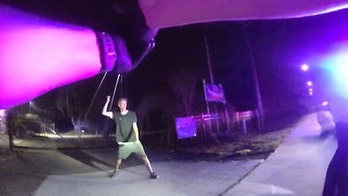Squatting, the illegal occupation of property, is a growing problem in America. Homeowners often find themselves in a legal quagmire, spending months and thousands of dollars trying to evict squatters. This article explores the challenges of squatting, the legal options available to homeowners, and the dangers of self-help evictions.
Squatting, the unlawful occupation of property, has become an increasing problem in America, leaving homeowners in a legal quagmire and facing the arduous task of evicting trespassers. The legal process of removing squatters can be lengthy and expensive, often dragging on for months and costing thousands of dollars.
Each state has its own squatting laws, which further complicates the issue. Homeowners must navigate a labyrinth of legal intricacies, often seeking the guidance of attorneys specializing in landlord-tenant disputes to understand their rights and the best course of action.

The Squatter Problem: A Legal Nightmare for Homeowners
One option homeowners consider is self-help eviction, a risky and potentially illegal route where landlords attempt to remove tenants or squatters without resorting to the judicial system. These actions can include changing locks, turning off utilities, or locking the squatter out of the property.
However, self-help evictions are prohibited in most states, with varying statutes and consequences for those who attempt them. Attorneys strongly advise against this approach due to the potential legal repercussions, including prosecution and legal challenges from the squatter.

The Squatter Problem: A Legal Nightmare for Homeowners
Even in states where self-help evictions are allowed, such as New York, it is a risky maneuver. Squatters may claim illegal lockout, and if the court finds the eviction improper, the landlord could face legal penalties.
Squatter situations often end up in court, where proceedings can drag on for months. Squatters may utilize fake documents and cunning tactics to prolong their stay, making it even more challenging for homeowners to regain possession of their properties.

The Squatter Problem: A Legal Nightmare for Homeowners
Homeowners are advised to contact the police immediately upon discovering a squatter and provide documentation proving ownership. Video surveillance can also be beneficial in proving the trespasser's illegal occupancy.
If the police are unable to remove the squatter, consulting with a local attorney can provide guidance on the appropriate legal steps to take. Attorneys can assist in navigating the legal system, protect homeowners' rights, and help them regain possession of their property as swiftly as possible.

The Squatter Problem: A Legal Nightmare for Homeowners
Self-help evictions are generally not recommended due to the potential legal consequences and the risk of further complications in the eviction process. It is crucial for homeowners to seek legal counsel to understand their rights and the most effective course of action to resolve the squatting issue.











